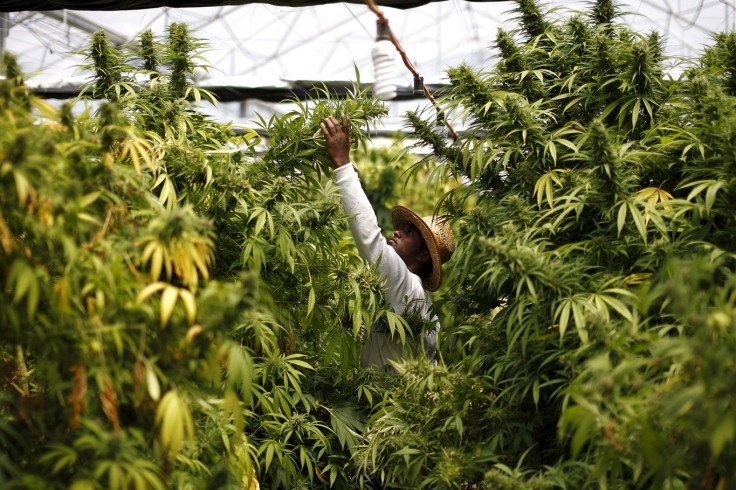Mergers, regulation and technology strengthen the cannabis industry

The growth of the cannabis industry, which is estimated to hit US$6 billion (AU$7.7 billion) by the end of 2016, is not an overnight success. The path which led to the expansion of this emerging billion dollar industry has oftentimes been criticised, labelled taboo and misunderstood. For years, though still in its infancy, the cannabis industry battled legalisations, acceptance, struggled with limited research funding and grappled with the existing social stigma attached to marijuana.
However, the marijuana industry has now changed. From implementation of less strict regulations to market diversification, there are more to expect this year. The 2016 Factbook, published by the Marijuana Business Daily, lists the data to prove it.
According to the Factbook, the marijuana industry is poised to hit a massive growth in the future which started in when it experienced record-breaking sales in 2015. With its growing acceptance, the road to legalising marijuana and global market reach of medical marijuana is underway.
Regulations in different countries
Globally, several countries have legalised cannabis use for medical purposes. According to Cannabis Wire, Jamaica, where use of medical cannabis is legal, allows each household to grow five cannabis plants.
Meanwhile, the conservative views of Australia defied its stand to legalise cannabis products specifically for medical purposes. In February, Australia intensified its efforts to legalise marijuana, which came just after the death of Dan Haslam, a stage 4 cancer patient who used medical marijuana for pain relief.
"It is incredibly fitting that today we are passing this bill which is one step towards making medicinal cannabis accessible to people like Dan," said Senator Richard Di Natale, who recalled Haslam’s cancer battle before the parliament.
On the other hand, Canada’s Prime Minister Justin Trudeau considers legalising marijuana on his agenda. One of Trudeau’s platform, aside from helping middle families, is to legalise, regulate and restrict access to marijuana. The prime minister believes that Canada’s current marijuana prohibition does not prevent juveniles from using marijuana. Instead, Trudeau proposes to create stronger laws to help keep it away from younger people and punish those who sell it outside the existing regulations.
The United States, where the marijuana legalisation battle is most talked about, has 23 out of 50 states that has legalised marijuana for medical use. Still, the Federal Government retains marijuana as an illegal substance, in the same category as ecstasy, heroin and LSD. Colorado and Washington, the pioneering states that have legalised state-wide use of marijuana for both medical and recreational use have experience billions of dollars increase in tax revenues.
In Colorado, sale revenues jumped more than 42 percent in 2015 and Fortune reported a total of US$996.2 million (AU$1.26 billion) in legal sales. In Washington, total sales revenues from marijuana sales up to this date totalled US$736 million (AU$943 million) and are expected to go higher.
Mergers and market expansion
As marijuana legalisation spring from one state to another and cannabis sales are at an all-time high, investors are eyeing this industry as a serious business venture. This, according to a Weed Rush report, is also pushing the market to expand and mature, as expected by investors.
For instance, a Colorado based-dispensary admits that it rakes in 2.5 million visitors per year — a big earning for dispensaries, cultivators and the state. As the industry matures, companies continue to merge to produce the best legal cannabis-based products. The Cannabis Rep Network and California Holistic Transfer recently announced their merger to improve distribution, transportation and marketing of their legal cannabis-based products.
“The combination of our two companies creates a powerful set of capabilities,” said Chris Boudreau, founder and CEO of California Holistic Transfer.
“Our objective is to empower manufacturers and growers to focus on research, innovation, product development and patient feedback, without the distraction and cost of having to build their own sales organization to achieve retail distribution,” added Boudreau.
Cultivation issues
Amidst the financial and medical boom for marijuana, most cultivators face one threat in pushing forward with the cannabis industry: growing cannabis indoors.
Growing cannabis indoors entails massive energy consumption, which strains a cultivator’s financial capabilities. According to INC’s probe on the issue of indoor cultivation, one solution is to establish a mutually beneficial relationship between cannabis growers and indoor cultivators. The move is directed to a more economical and efficient alternative to growing weeds indoors and, that is, growing the plant via greenhouses.
Greenhouses growers attest to the reduction in energy consumption and costs. The INC report revealed that growing cannabis greenhouse enables almost the same yield at four to six harvests per year, but at a lesser cost. The cultivators reported that cannabis cultivated in the greenhouse can produce a pound of weed at a US$50 (AU$64) cost, when indoor cultivation needs US$300 to US$500 (AU$384 to AU$640) for the same yield. More importantly, the capabilities of today’s cultivators to revolutionise production of organic cannabis and pesticides prevent growth of moulds.
Los Angeles-based medical cannabis company Med-X is able to provide innovative and all-natural solutions for cannabis cultivators. The company, which runs a crowdfunding campaign, is just among the medical cannabis companies aiming to provide better understanding of the cannabis industry. Med-X accomplishes this through educating the community and developing products that are not only safe, but effective and affordable as well.
The legal marijuana industry paves the way for states and countries to increase revenue from its sales and solve medical issues. Likewise, its legalisation in different parts of the world creates a path for emerging cannabis companies and startups to up their game and innovate products that can be used for medical purposes.





















